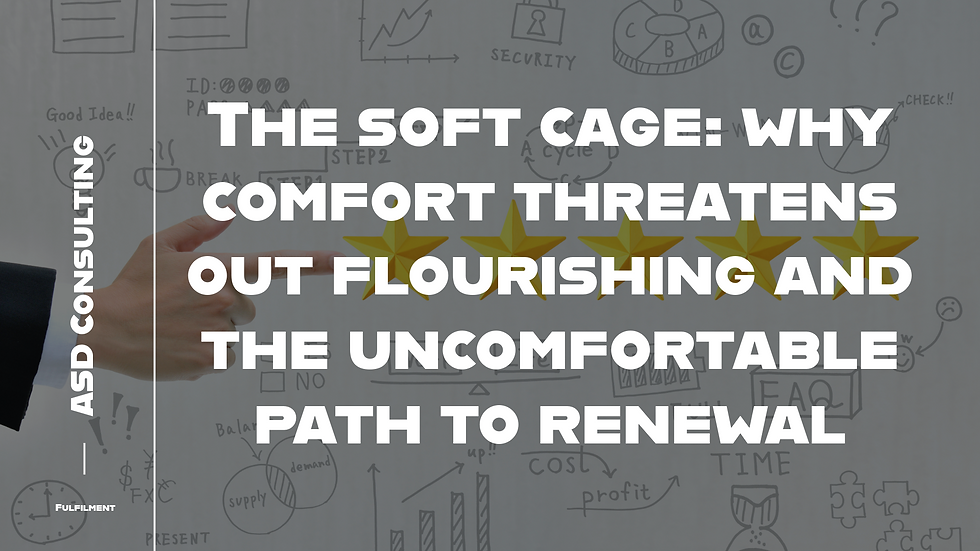The Neurodivergent Spark: Unveiling the Creative Superpowers Within.
- David Tyler

- Jun 26
- 3 min read
Neurodiversity a unique brain wiring that can fuel incredible creativity? The Neurodivergent Spark

For too long, society has focused on what neurodivergent individuals—those with conditions like ADHD, autism, or dyslexia—"lack." But it's time to flip the script and recognise the extraordinary creative superpowers that often come with these unique minds.
The 'Why': A Different Kind of Brainpower: So, why might neurodivergent brains be more inclined to creative thinking? It often comes down to a few fascinating ways these brains are wired. Take divergent thinking, for example. This is the ability to generate multiple, varied ideas from a single starting point, and it's a cornerstone of creativity. Neurodivergent individuals often excel at this, seeing connections where others don't and approaching problems from fresh, unconventional angles. Then there's hyper-focus, a common trait in some neurodivergent profiles. When a neurodivergent person finds something truly engaging, they can dive deep, dedicating intense, sustained attention that allows for mastery and groundbreaking innovation. They might also possess an exceptional ability to see patterns others miss, connecting seemingly unrelated pieces of information to form new insights. It's like having a built-in "super-scanner" for novel possibilities.
Celebrating the Spectrum of Creativity: The beauty of neurodiversity lies in its spectrum, and each profile often brings its own unique creative strengths to the table:
ADHD: The 'Idea-a-Minute' Brain: If you have ADHD, your brain might feel like a bustling marketplace of ideas, constantly buzzing with new thoughts and connections. This rapid-fire thinking can lead to an incredible ability to make novel connections between disparate concepts, sparking genuinely original ideas. That seemingly impulsive drive for new experiences? It often translates into a fearless exploration of uncharted creative territories. Many with ADHD thrive in dynamic, fast-paced creative fields where spontaneity and quick thinking are assets.
Autism: The Power of Deep Focus and Unique Perspectives: Individuals on the autism spectrum often possess an extraordinary capacity for deep focus on their intense interests. This isn't just a hobby; it's a profound dive into a subject, leading to encyclopaedic knowledge and a level of expertise that can fuel incredibly detailed and intricate creative work. Their unique, often unfiltered perspective allows them to see the world with a fresh lens, free from conventional assumptions, resulting in truly original artistic expressions, scientific breakthroughs, or innovative solutions.
Dyslexia: Visual-Spatial Superpowers and Storytelling Prowess: Dyslexia, often misunderstood as simply a reading difficulty, is frequently linked to powerful visual-spatial reasoning skills. This means a natural aptitude for thinking in images and three dimensions, which can be a huge advantage in fields like architecture, design, engineering, and even sculpture. Many dyslexic individuals also have a natural flair for storytelling and big-picture thinking, excelling at crafting narratives and understanding complex systems, even if traditional text presents a challenge.
Real-World Examples: Lighting the Way: History and the present day are full of inspiring examples of creative individuals who are known or thought to be neurodivergent. Think of Albert Einstein, whose revolutionary theories came from thinking "outside the box," a trait often associated with neurodivergent minds. Or Stephen Spielberg, whose dyslexia hasn't hindered his ability to craft some of the most beloved visual narratives in cinema history. Greta Thunberg, a powerful voice for climate action, is openly autistic, demonstrating how a unique perspective can drive profound change. These individuals, and countless others, remind us that different doesn't mean less; it often means more—more innovation, more insight, and more breathtaking creativity.
Reclaiming Your Creative Potential: It's time to reframe our understanding of neurodiversity, not as a list of challenges, but as a wellspring of creative potential. If you are neurodivergent, understand that your unique brain wiring is a gift, not a burden. Embrace your "spark." Identify those unique ways your mind works and lean into them. For everyone, let's cultivate a world that celebrates these diverse ways of thinking and creating. Because when we recognise and nurture every kind of spark, we unlock an incredible reservoir of human ingenuity and imagination that benefits us all. What unique spark will you celebrate today?



Comments